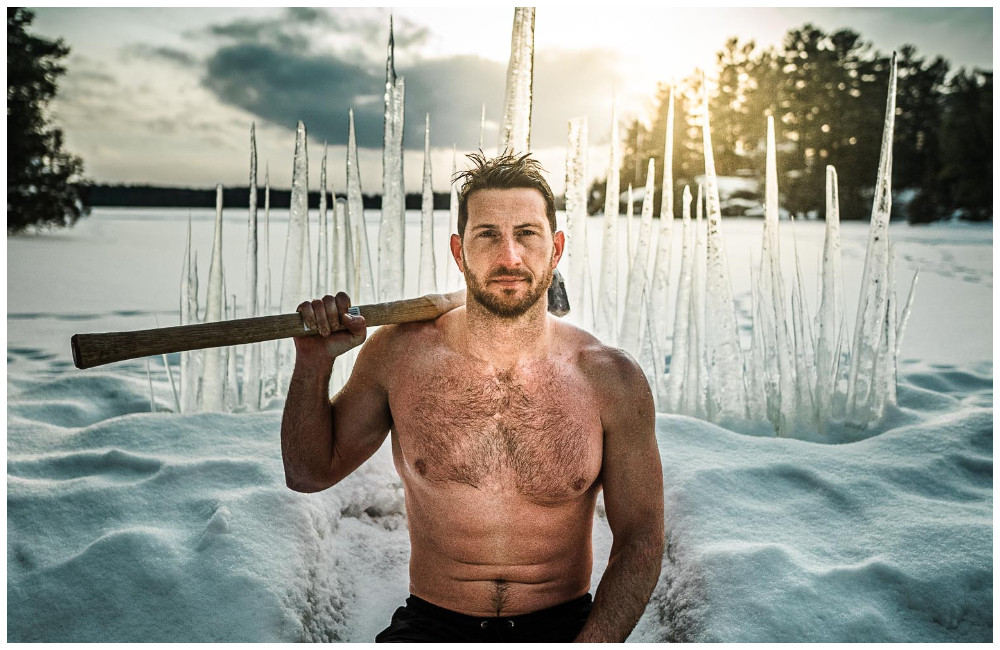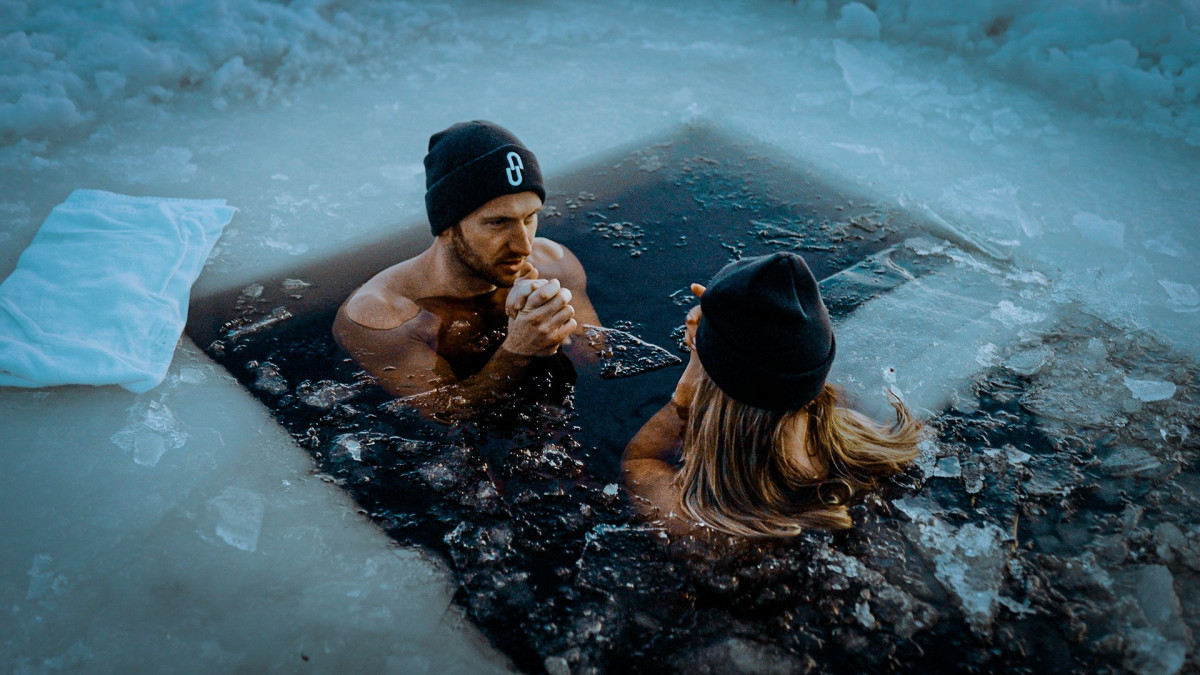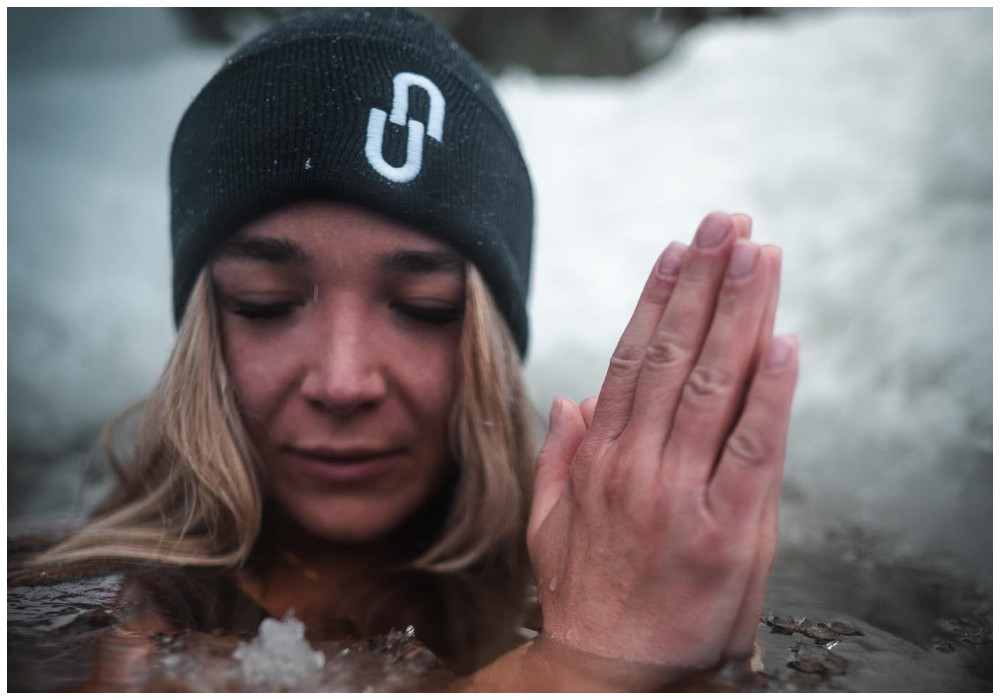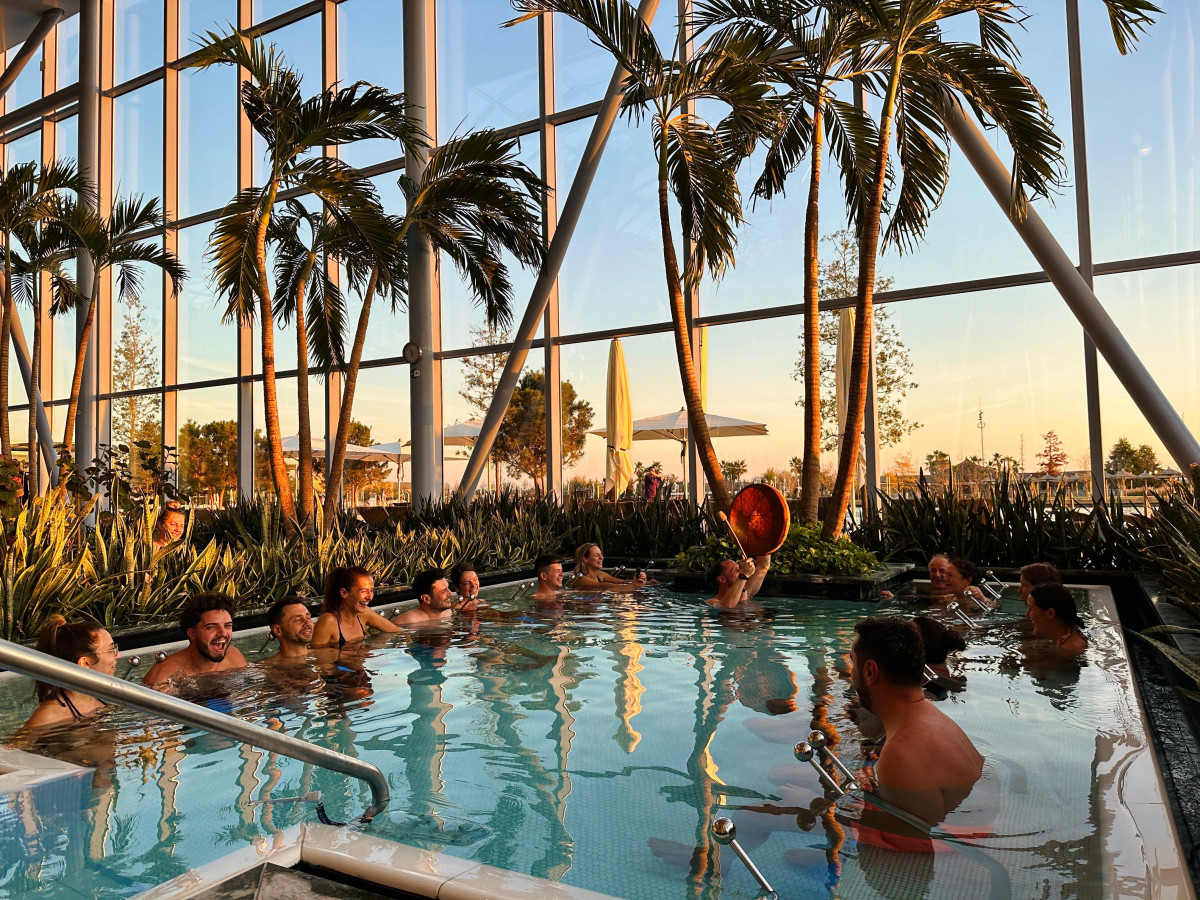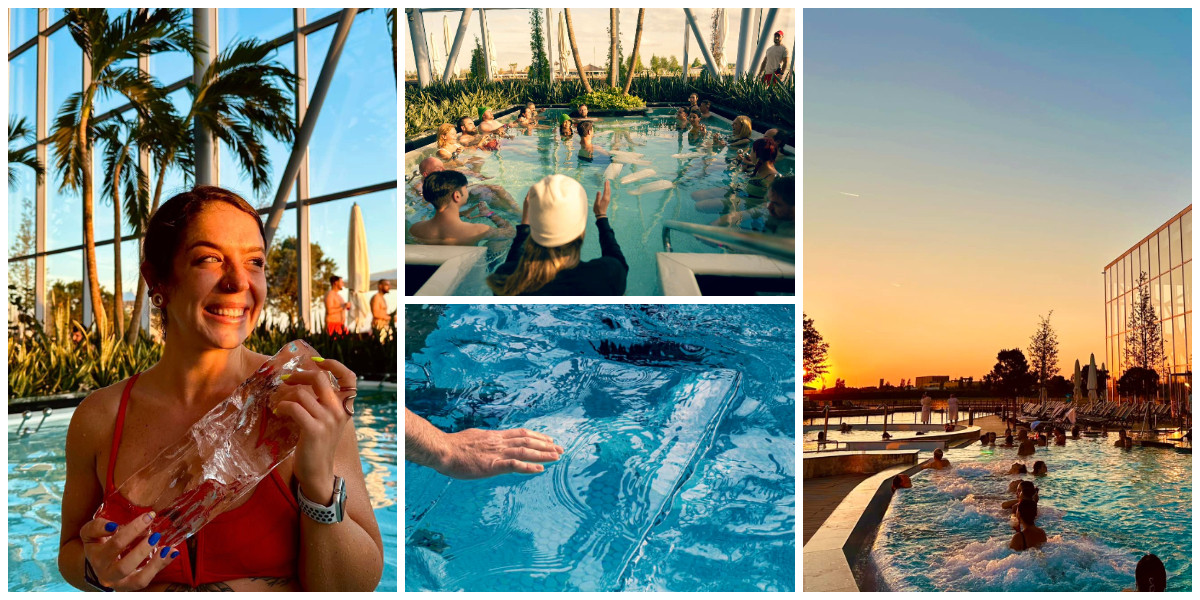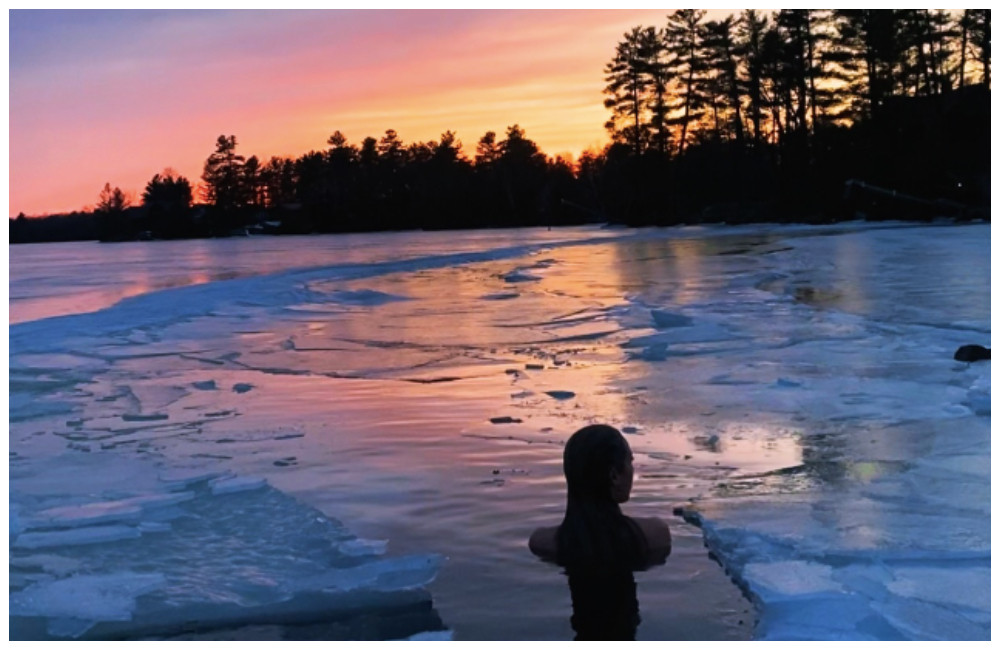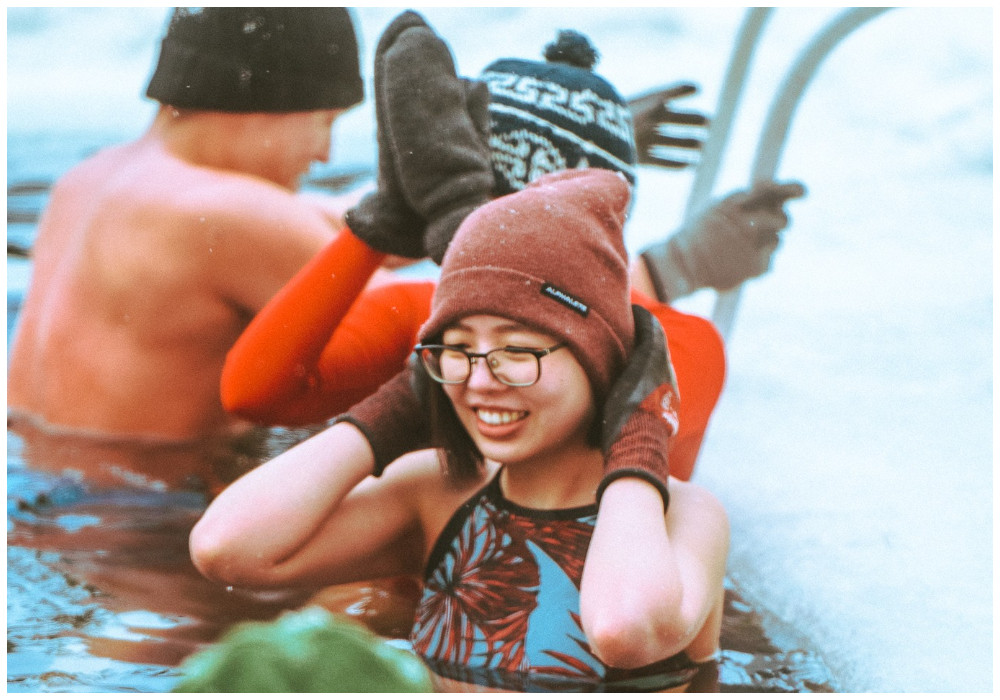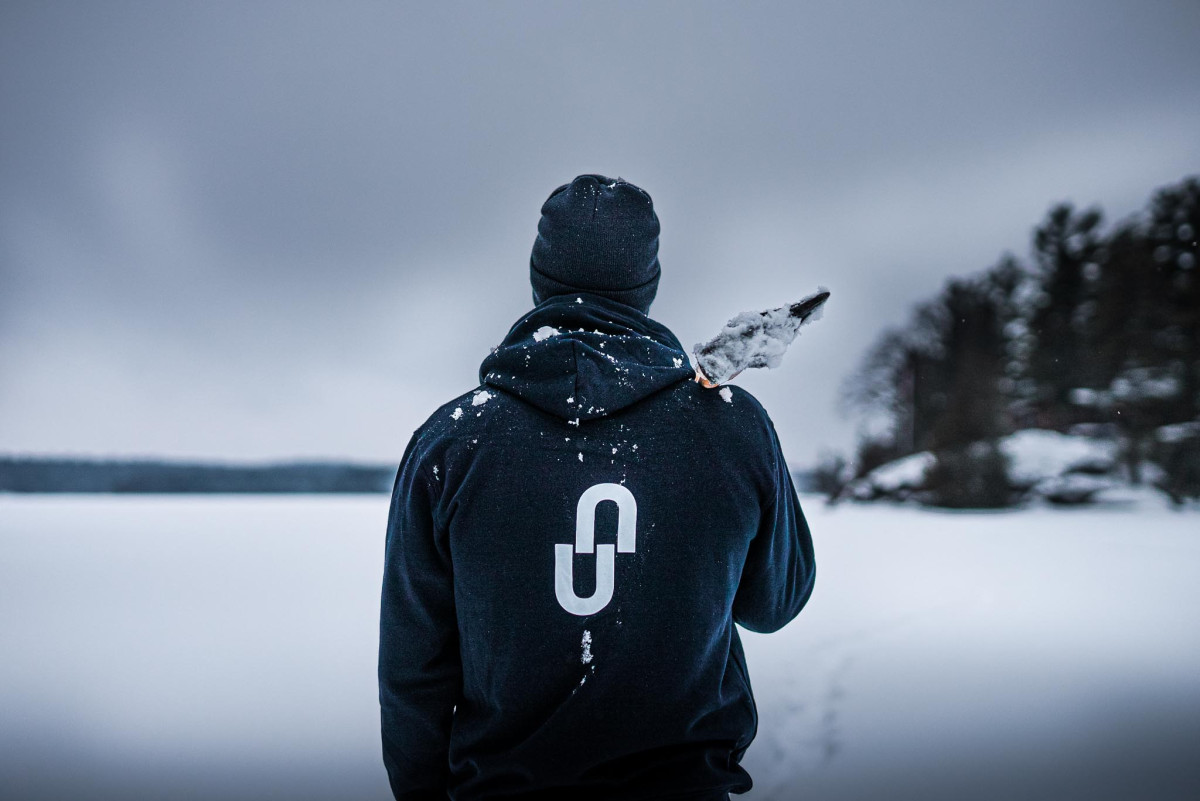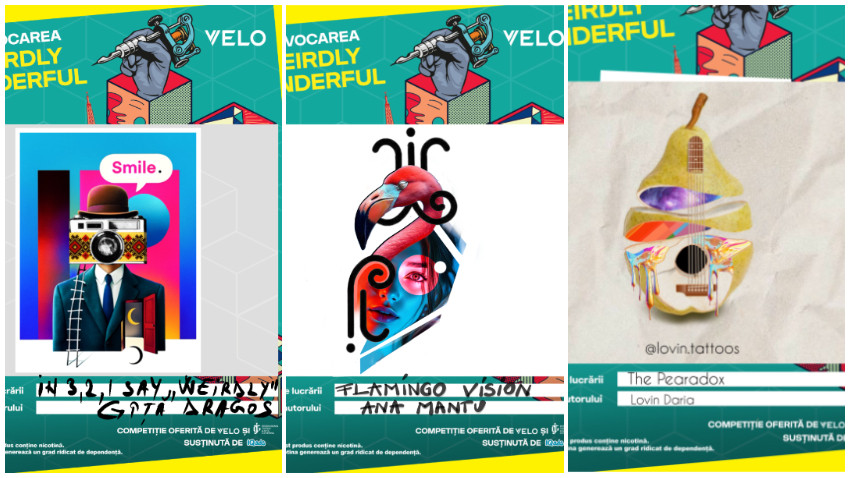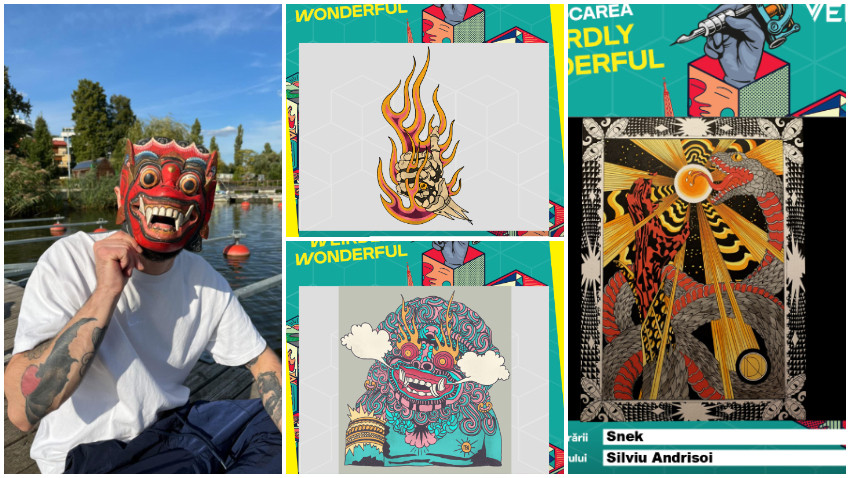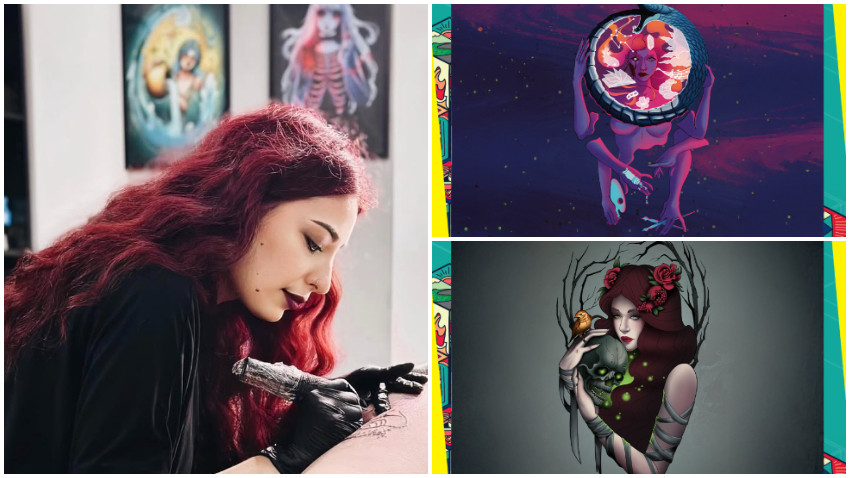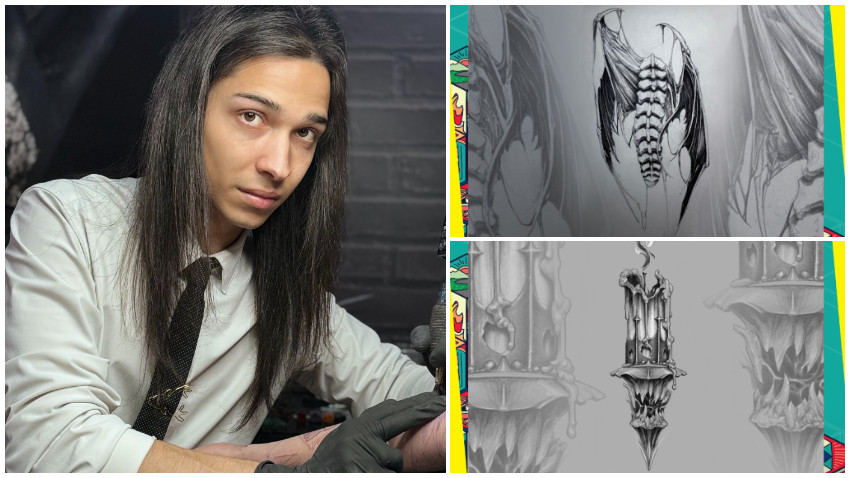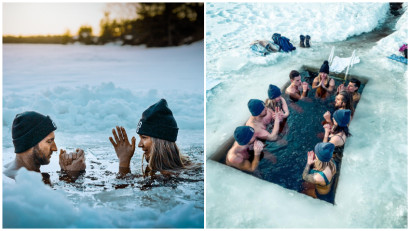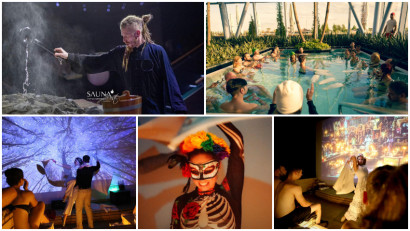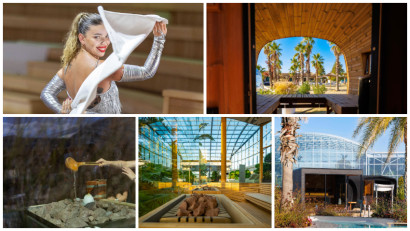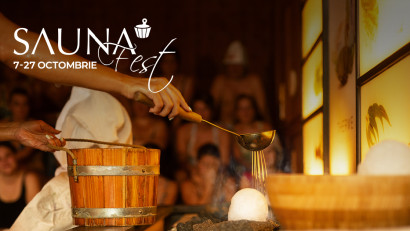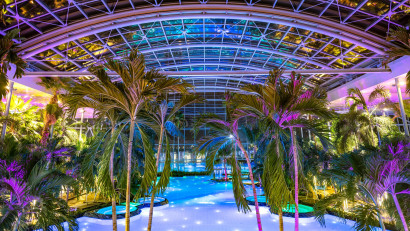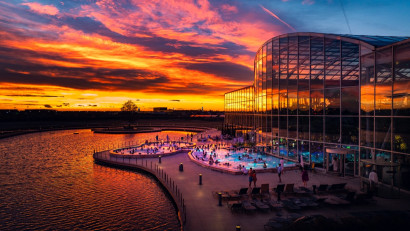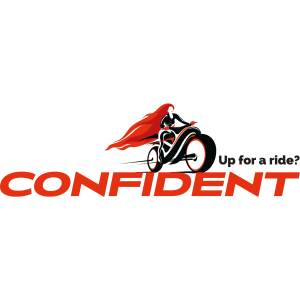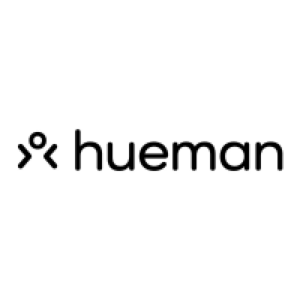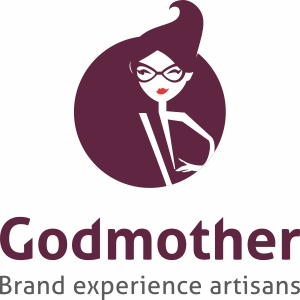Let's take an ice bath, what do you say? Almost everyone says no. For obvious reasons. First of all: Why do something unpleasant, uncomfortable, difficult? Then the limits intervene, the fear. You fear what you cannot control. What if you fail? What if you aren't good enough? This is no longer about cold water. It is about our ordinary life and everyday fears.
And yet, hundreds of people made this journey at Sauna Fest: from 60 degrees Celsius in the sauna to diving into an ice pool. They were happy. More than happy, but this state cannot be described, only experienced. Why? Because they realized what they are capable of, how amazing human resources are, when you put aside the prejudices. And you can't find that out unless you allow yourself to have amazing experiences.
This is what Therme Bucharest brought through Sauna Fest: opportunities to live and discover what you are really capable of. 80 masters from 20 countries transformed 12 saunas into performance stages and 500 moments of inspiration and reconnection.
Lisa Kricfalusi and Nick McNaught from Unbounded have prepared three different ice bath rituals for Sauna Fest, designed as a transformative journey: Break The Ice, Weather The Storm and Immersive Sound. From understanding the benefits of cold baths and breathing exercises, to the magic of a show with Canadian music, rhythms and flavors, where people discover the joy of simply being.
"A good life is a life where you're able to struggle well, a life where you're able to manage stress well. It doesn't mean a life where there is no chaos. It means finding peace in the chaos", says Nick.
We talked with Nick and Lisa about how they came up with the shows at Sauna Fest, what they've learned about people from challenging them in such experiments, and how they manage the stress and frustrations of everyday life.
The beginning
Nick: Growing up, I always did a polar swim at Christmas or New Year. I'd jump in with the family and it was the adrenaline and the celebration. I never really meant to do this for wellness or for my mental health or for my physical health. It was just jump in and jump out for fun.
And then, during the pandemic, you couldn't go to the gym, you couldn't see friends, you couldn't do a lot of things. So I found myself searching for ways to engage my environment in a different way. I was swimming in the lake during the summer. And then I just kept swimming in the lake, because I couldn't go see friends, I couldn't do things. So I would be swimming on the shores late into the season. I didn't know all the science then, but I knew that I was feeling good when I got out.
I felt really clear. I felt really present. I felt really healthy. And I wanted to share it with people. When we were able to see people, I'd go for a swim with a friend. Instead of saying: "Do you want to go for coffee?", i'd say: "do you want to go to the beach and jump in the water and sit in the water and have a fire on the shore and talk?". At first, they thought I was crazy, but they would do it and they wre like: "wow! can we do this again next weekend?".
It went from me doing stuff that was fitting my lifestyle, that was making me feel good in my life and that was making my friends connected and that just continued to evolve. It went from me and one friend to me and five friends to their friends and then all of a sudden hundreds and tons of people coming.
I've always been an entrepreneur, I've run different businesses. I ran a food delivery business for about 10 years and then I built a glamping resort. After that project, I was coming back to to Canada and trying to think of what my next thing would be. And it just happened that I was swimming and that became the next thing. It found me.
Lisa: When we started Unbounded, cold water swimming, wild swimming was not popular in Canada at all. Not even known, really.
I'm Finnish and Ukrainian. My Finnish grandmother noticed I was going through a lot of grief at the time. I lost my dad, I had a bad car accident, all these things happened all at once. I was so sad I just I couldn't put my feet on the ground of getting out of bed. My Finnish grandmother said: "Okay, you're not practicing anything that you know helps you feel well". I began getting into the cold and sauna and practicing that. She said: "Just do me a favor and do it for 10 days". And I did it for 10 days and I journaled.
I was very intentional about why I was getting in the water every single time. I'm a kinesiologist and yoga instructor, I used to swim quite competitively in Canada for synchronized swimming. That was my background in health. After my university degree, I went into the corporate arm, I went into the operations of sport. I was feeling really burnt out in the pandemic, feeling really sad and I start doing this practice. I changed myself after 10 days. And people at my work were asking, "okay, how are you doing this? What are you changing? What are you up to?".
Nick invited me to his community plunges, we ran into the water, did a plunge and ran out. And he said: "do you have any feedback?". And I said: "Oh my gosh, I have so much feedback".
And so it started. Not just having communities come for health and human connection, but they came for their own why. More and more people came and we joined forces. We were friends at first and then we were business partners and then we fell in love. That's how our story happened.
Discoveries
Nick: For me, it's the the science behind it. The reason why you feel good when you do this, what is is actually happening in your body. Like I was saying before, for me was all experiential. I was jumping in and staying in cold water and connecting with friends and doing it for a lifestyle. Lisa, with her kinesiology background and doing this all her life, she knew a lot of the science and a lot of the mechanisms in the body that are taking place and I didn't.
It might not sound that glamorous to say, but for me, actually understanding why your finger's feeling a little numb and what is happening in your body and what I need to do. I learned all about the science and the education over the next couple years. I've learned what is actually happening in your body and how you can utilize the tools that we have within our body.
Lisa: We taught one other what we each brought to the community. I knew the science, I knew why it was beneficial, and I practiced on my own. Nick’s invitation made it a group practice for me, very quickly. In a group practice, I realized when people struggle, well, and struggle together, there's this automatic glue that happens. Simply bringing people into cold water — is enough of a struggle for people to build genuine human connection. Everything we offer at Unbounded is designed around human connection.
Fears & boundaries
Nick: I think that humans were naturally a fearful species, we often spend a lot of our time surviving as opposed to living. From a very biological standpoint, we're always looking for threats, we're always operating out of some sort of protecting ourselves. A lot of people attach an emotional fear to cold water or a limitation. It's not just the water. They do that in all other areas of their life. We help them to break down one simple barrier. We teach them how they can actually use that as a benefit. When you remove that fear, they become a lot more open to challenging fears and limitations in other areas.
Humans tend to operate on a very fear-based, survival-based level. When you teach people how to operate on a curiosity level, on an inner confidence and a feeling of capability, it'll dramatically change their life.
The most important thing that i've learned about people is how capable people are, in disguise almost. They don't necessarily realize how resilient they are until they move through something and then it almost unlocks a different level of awareness. I've watched it in people, i can see their faces change in an instant just by going through something uncomfortable and being "wow I'm actually capable". It translates to confidence at work, confidence in conversations, confidence putting themselves out there to ask for a date. It translates in so many different areas.
The experiences at Therme
Nick: We love it here. We do. We love it here. The facility is amazing. The space is incredible. It feels like coming home. It feels so welcome and so kind. But the thing that we leave with more than anything is the people.
I had a lot of fun planning this. First experience is more of an introductory. It gives people the understanding. When you give people education around something, it removes a lot of the barriers and makes it more approachable. The other two shows are a lot more experiential.
We want to give people the opportunity to learn and then we want to give the opportunity to be really immersive. One is about really understanding breathwork and practicing breathwork to a rhythm and with a drum, both in the sauna and in the water. And the third is live acoustic guitar with singing in the sauna and in the water. Music is a huge part of what we do. And there's science based in everything that we do.
Lisa: Everything we do is rooted in education, and there's a scientific why behind it. The drums, chanting, singing, any sound therapy and acoustics is also on purpose. Any lighting in the visuals and the audio visuals that we have is on purpose. Everything we do is on purpose and it's tied back to a scientific benefit.
A good life
Nick: I read an amazing book a long time ago called "No mud no lotus". Lotuses are beautiful flowers, they grow in mud. The book is written by a Zen Buddhist monk. It's about how to live a good life. And a good life, according to him, is a life where you struggle well. I've taken that on and we've tried to translate that on a lot of our stuff.
The idea that you're going to get to a place where there's no more stress and it's a peaceful life and all your troubles are gone... It's a place you're never going to get to because it doesn't exist. No matter the further along you get, the bigger the stress gets. A good life is a life where you're able to struggle well, a life where you're able to manage stress well. It doesn't mean a life where there is no chaos. It means finding peace in the chaos.
What we try to do is teach people how to manage that chaos. It's a matter of perspective. If you can create moments where you challenge yourself and you create opportunity of discomfort, then your life will be good because it's all about how you approach life. It's not realistic, it's not tangible and it's not relatable when you tell people: "just be peaceful". How? You give people small accessible tools to manage the stress, not remove the stress.
Lisa: There are so many opportunities within a day that I could apply all of these practices to. I'm still learning. There are different things that trigger my stress response and I'm still working to breathe through it. When I feel grief, it's heavy. I know the feeling so viscerally in my body and what it feels like to barely be able to breathe and I have to think about what are all the tools in my toolbox that I can use to regulate my nervous system and show up for people today. I don't do it 100% well all the time, I mess up every day, I'm still learning.
Nick: There's a practice that I try and do. When something bad happens, you ask yourself three questions. 1. What is good about this? If something bad happens, you find the good in the bad and you spend a minute or two just listing the reasons. 2. The second question you ask yourself is: what can I learn from this? 3. The third question is, how can I improve this? And so you switch your mind from a state of negativity and shutting down into a place of positivity and creativity and problem solving.
A lost art
Nick: We always live for something else, you know? We're always on our way to work. And then we'll get home. We're always living into the future. Or we're always thinking about something we did. And we're actually very rarely here. Just being, right?
We've lost the ability to just be. We're human doings now, not human beings. Everyone is attached, everyone's connected, you're available to everyone at all times because everyone has technology. You have work obligations, your family obligations, you're aware more than ever because of social media and the comparison culture, so you spend so little time just being. Which is what we have done for hundreds of thousands of years as a species. Just being who you are, exactly as you are, with nothing else and being okay with that. It's a lost art for people nowadays. So we try to give people moments where you just be for a moment here.
There was a gentleman that came up after the experience and he tells us that for the last three months all he does is being on the laptop. This is the first time in three months where he actually just stopped. It's so rewarding. We don't give ourselves that permission to stop, we feel ashamed when we do nothing. "I'm not doing enough". The value is for doing, not for just sitting there. They've done tons of studies on people at the end of their life. They all say: I wish I lived my life the way I wanted. We are living our lives the way we think others want us to and not just the way we want to live it.
Happiness is not a place you can get to. It's a result of you changing how you are, not something you get. Oh, when I get this much money or I get this car or this house or when I get to this point, then I'll be happy. That won't happen. You're just postponing life. You can be happy right now in this moment. You just have to create the environment for happiness to arrive at you.
But you have to understand do not have a false expectation. It is about taking accountability for the things you can control and letting go of the things you cannot. It's hard to do in practice. And to separate those two.
That's exactly what cold exposure is in some ways: you can't control the temperature, it is you have to release control, you have to surrender to it and in that surrender you actually gain control of yourself. It's a very ethereal concept: i'm surrendering to this and releasing control and in doing that I actually gain more control of myself. I try and use it as a metaphor for resilience.

